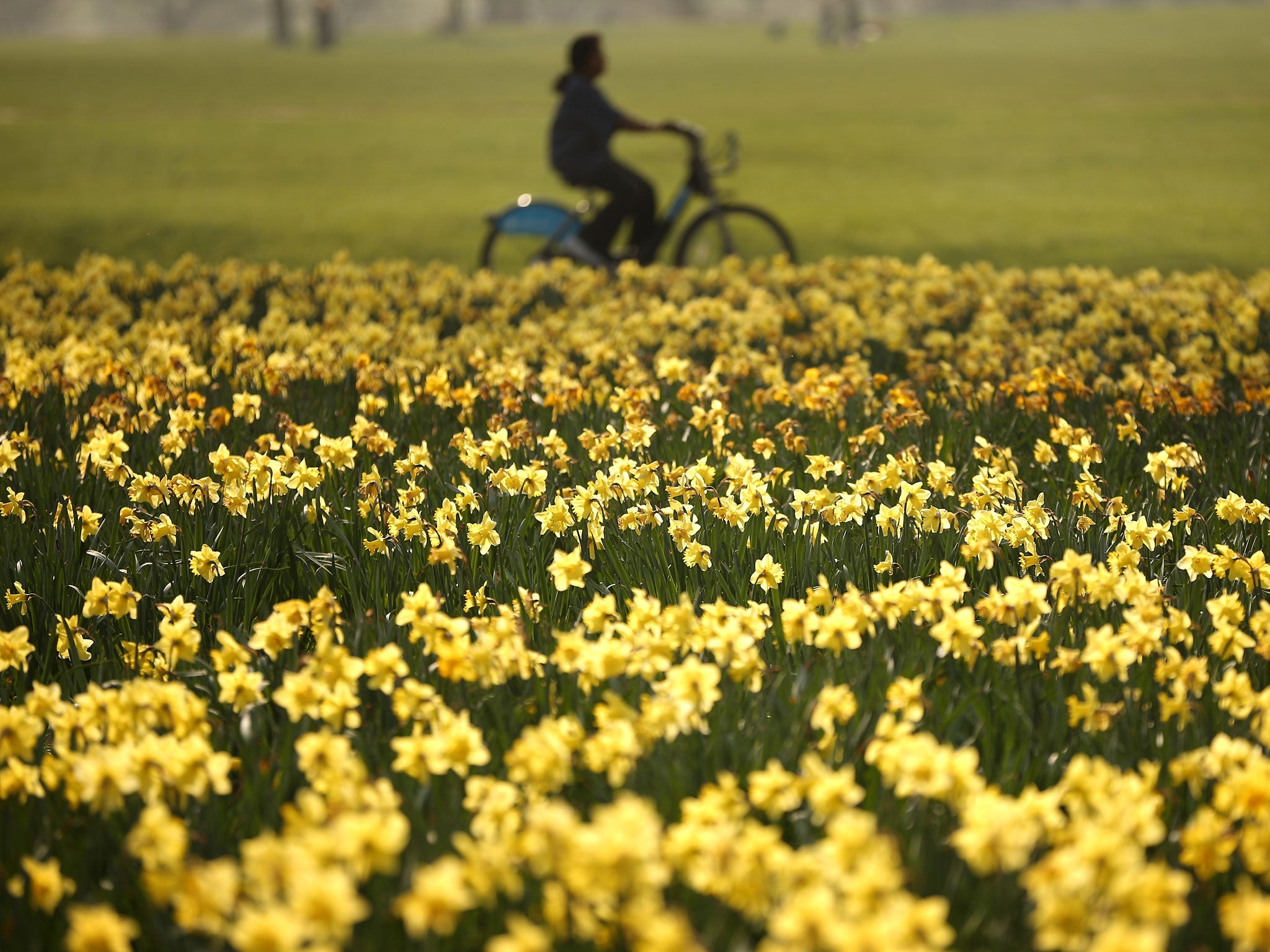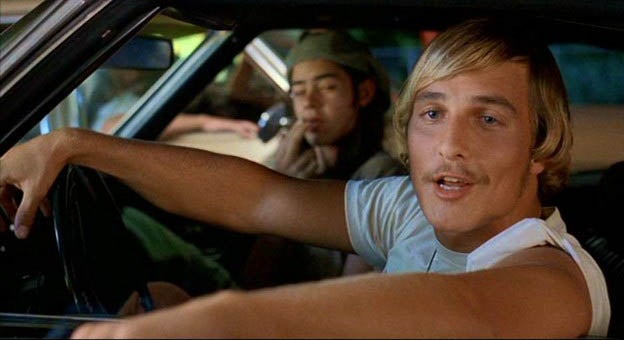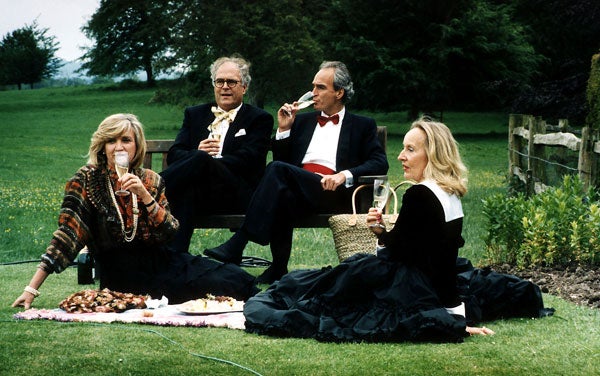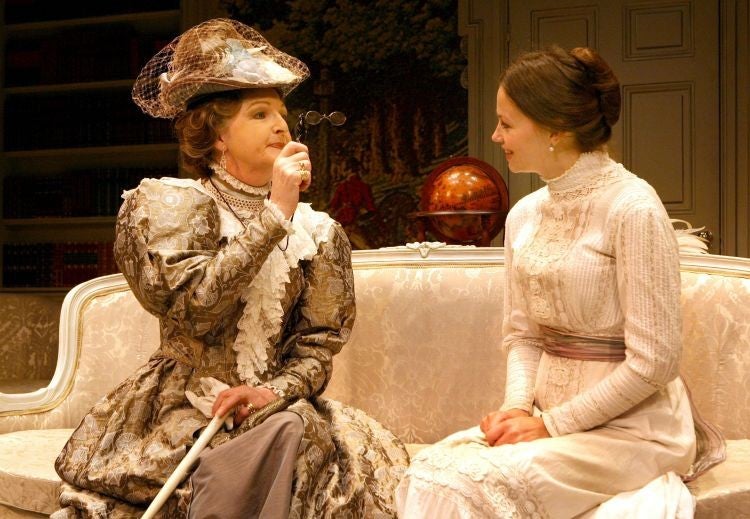Dazed and Confused to The Importance of Being Earnest, the works that evoke that Summer feeling
Everything from films to music, this is what makes our writers think of the heat

The sun has got his hat on, pasty legs are coming out, and the beach beckons. In anticipation, our writers pick the artistic works that best evoke this hot and heady season.
FILM - Dazed and Confused, says Hugh Montgomery
Not to be contrary, but summer is a season so joyful that it can only be impossibly sad: after all, from the long school holidays of yore to the Mediterranean getaways and festival blowouts of today, its moments of carefree nirvana only exist in the knowledge that they’ll be over far too soon. And, for me, no film captures that combination of bliss and melancholy better than Boyhood director Richard Linklater’s 1993 masterpiece, spanning a little more than 12 hours rather than 12 years, but equally concerned with that pesky winged chariot. Set on 28 May 1976, we see the young, beautiful and bell-bottomed of Austin, Texas, celebrate the last day of high school with plotless abandon in a collage of freshman beatings, first kisses, keg parties, stoner sessions, and aimless driving around town. When I first watched, and endlessly re-watched, it as a teenager, it was pure wish fulfilment: a vision of how a teenage summer ought to be, picturesquely all-American, perfectly soundtracked, and bursting with brilliant characters.

My favourites? Parker Posey’s toxic-queen cheerleader and Matthew McConaughey’s snake-hipped sleaze Wooderson. But as I watch it two decades on, older and more miserable, I now see it for what it is, of course: a lament for summer’s – and by extension youth’s – transience. Its characters party like there’s no tomorrow because they’re all too aware there is one. Though in the end, like the mid-twentysomething Wooderson, pathetically hanging with the high-school kids, I’m still suckered by its vision of flying textbooks and beer-filled bonnets. Now, on the count of three: “School’s out for SUMMER ....”
My tip for Summer 2015: Trainwreck (out 14 Aug), the new Judd Apatow film that’s a vehicle for its brilliant star/writer, stand-up Amy Schumer.
POP - Madonna, The Immaculate Collection, says Gillian Orr
I’m not sure I believe in the idea of summer tunes. It’s not as if the mercury rises, the opaque tights are ditched, I start having to shave my legs every day, and all of a sudden my music taste changes. Having said that, I suppose a certain kind of play-list lends itself to drinking Coronas around a pool or trying to barbecue sausages on those crappy foil trays in the park. I am too young to remember The Immaculate Collection being released in 1990 but I have come to associate it with sunshine simply because it has soundtracked so many vacations. The record’s shimmery beats lend themselves to warmer climes and, duh, there’s a song called “Holiday” on it.

Everyone knows the words, and over-excited singalongs make it perfect for a bunch of people just awarded a fortnight of freedom and pre-lunch boozing. After A-levels, five schoolfriends and I would dance around to “La Isla Bonita” while we got ready in a crammed apartment in Gran Canaria, smearing Juicy Tubes on our lips. When some pals and I drove a yellow VW camper van from England to Morocco when we finished university, The Immaculate Collection was one of four cassette tapes we remembered to bring. Last summer, a group of us hired a villa in Deia, Mallorca. One bored afternoon we choreographed a synchronised swim to “Vogue” complete with stunning belly flops. My holidays have become more swish but, just like sunburn, Madonna still somehow tends to make an appearance.
My tip for Summer 2015: Tame Impala’s new album Currents (out 17 July), which promises a fresh marriage between the psych rock of the Perth band’s previous efforts with pop and R’n’B.
CLASSICAL - Die Meistersinger von Nürnberg, says Gavin Plumley
Every July, like migrating birds, my fella, my dog and I go south for a month of reading and recuperation – our hound’s book list is, of course, the most imposing. As well as planning stopovers along the way, I create an exhaustive playlist, impeccably timed to burst into Die Meistersinger von Nürnberg as we drive over the German border. Wagner’s near five-hour epic is my idea of summer, beginning on a balmy day in 16th-century Nuremberg and quickly turning into a barmy night. “Madness! Madness! Everywhere!” shouts cobbler-poet and Renaissance man Hans Sachs, my operatic hero.

Why all the fuss? Well, summer means a song contest and the local Mastersingers have begun squabbling over the rules and are even copying each other’s entries. After a night of rioting, they gather in the meadows outside the city for their Eurovision meets Schopenhauer showdown – after all, it wouldn’t be Germany without a bit of impenetrable philosophy! Rather than the old bastions, it is the young Walther who bags the prize, the hand of goldsmith Pogner’s daughter Eva, with “Shining in the rosy light of morning”. It’s a pure hit of musical Vitamin D. But Wagner doesn’t miss the melancholy of the season either. As Walther claims Eva, the compassionate Sachs’s hopes evaporate. Her friend for years, he nonetheless realises that Walther is the “right man” for Eva and a new guardian for the Mastersingers’ traditions. Who needs Scott McKenzie’s “San Francisco” when you can have Wagner’s summer of love?
My tip for Summer 2015: ALMA’s second album Transalpin (out now). This Austrian folk quintet sounds like the yodelling lovechild of a Tyrolean oom-pah band and the Penguin Café Orchestra.
ART - The Pool of London (1906), André Derain (Tate, London), says Claudia Pritchard
This joyous view of what, in 1906, would have been a distinctly murky stretch of the Thames between London Bridge and Tower Bridge has a link to the Mediterranean resort of Collioure, and so brings a whiff of the south of France to the heart of London. The year before Derain painted this, one of 30 Thames pictures, he had spent the summer at Collioure with Matisse, the pair producing the highly coloured and simplified images that would be derided by one critic as fauve – wild – and give rise to the movement named after that insult. Fauvism was short-lived, and Derain would return, via Cubism, to a more classical style, but his Thames pictures mark a vibrant episode.
The gallerist Ambroise Vollard, seeing the success in the 1890s of the Monet Thames paintings, commissioned Derain to paint a series of his own, of which this is a wonderful example. Its typically giddy high viewpoint down on to the working vessels jostling for room in the inner Pool puts industry in the foreground, while Tower Bridge, opened only 12 years earlier, seems to be not the tourist landmark that it is today, but another element in the complex rigging and gear of the craft. Now that once-working barges ply up and down as pleasure craft, the river banks throng with walkers and the wharves are converted into waterside apartments. What was once a noisome and dangerous place of work has now become the bright spot that Derain once saw through the grit and grime.
My tip for Summer 2015: Sickert in Dieppe at Chichester’s Pallant House (4 July to 4 Oct), an exhibition of Walter Sickert’s paintings of the French resort.
THEATRE - The Importance of Being Earnest, says Holly Williams
Outdoor theatre is, like most British summertime activities, fraught with risk – for every magical, balmy production of A Midsummer Night’s Dream, there’s a rain-lashed The Tempest, where it’s not so much a case of the weather adding atmosphere than fear of electrocution. When the sun smiles though, it can be a treat. Open-air productions demand to be pimped with picnics, Pimm’s and pretty frocks. And in this atmosphere of halcyon decadence, one needs a play to match – this is no time for politically potent Brecht or existential Beckett. Step forward, Oscar Wilde.

The Importance of Being Earnest is, for me, a perfect summer play: it justifies being played outdoors by having a whole act actually set outdoors, and its light, tightly plotted romantic comedy of mistaken identities is best served with a glass of fizz in an English garden. I remember watching it as a student in York – we were in the strange, spare months between handing in essays and graduating into the big wide world. We could use a bit of escapism, and got it in the form of a jolly production of The Importance of Being Earnest in Rowntree Park.
It was directed by my housemate Sophie (now a professional theatre director), and I was friends with most of the cast – but only really had eyes for my then-boyfriend, playing Worthing, and I couldn’t have been more proud of him. Young love and afternoon tea came together – both onstage and off – and helped forever cast this play in a rosy glow. I’m clearly not the only one: Wilde’s comedy has become a summery staple, for amateurs and professionals alike. Pass the muffins!
My tip for Summer 2015: The Skriker at the Royal Exchange Theatre, Manchester (1 July to 1 Aug) a new adaptation of Caryl Churchill’s 1994 play, starring Maxine Peake and with music by Nico Muhly and Antony Hegarty.
Join our commenting forum
Join thought-provoking conversations, follow other Independent readers and see their replies
Comments
Bookmark popover
Removed from bookmarks